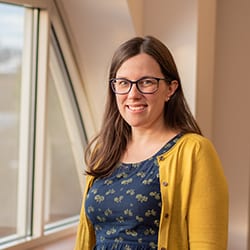
Learning to understand accented English.
Melissa Baese-Berk
Melissa Baese-Berk is an Associate Professor in the Department of Linguistics, and the Director of the Speech Perception and Production Laboratory at the University of Oregon. Melissa’s research examines how humans understand and produce language, with a particular focus on non-native speakers and on communication between native and non-native speakers of a language. Specifically, she asks what cognitive and linguistic factors impact communication between speakers from different native language backgrounds, and how communication can be improved through training. Her work draws from a variety of disciplines including linguistics, speech science, cognitive science, and psychology. She earned her B.A. in Linguistics at Boston University and her Ph.D. in Linguistics with a specialization in Cognitive Science at Northwestern University.
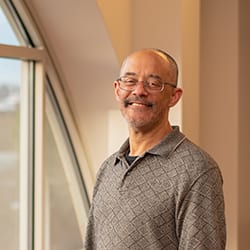
The case for compost.
Rodney Bloom
It was a secondhand school bus and the pursuit of dreams that brought Rodney Bloom and family to Eugene, Oregon where Rodney has since deeply explored his passion for composting. At Food for Lane County Rodney created and maintained the systems that transformed their food waste into rich compost diverting over 50 tons of food discards from the landfill. He has traveled to New Orleans, Senegal and Ethiopia to introduce composting methods to save and rebuild depleted and eroded soils. A proud supporter of the Black Male Alliance and the Native American Student Union, Rodney is a recipient of the University of Oregon’s Martin Luther King Jr. Award in recognition of his efforts in building both soil and community.
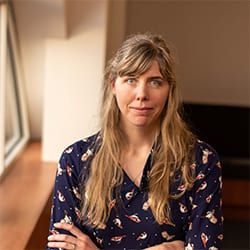
Bold ideas and achievable solutions for a #GreenNewDeal
Doyle Canning
Doyle Canning is a writer, mother, grassroots organizer, and longtime strategist in the climate movement. She is co-founder of the Center for Story-based Strategy and co-author of Reimagining Change: How to Use Story-based Strategy to Win Campaigns, Build Movements, and Change the World (PM Press, 2017). She is a fellow at the Environmental and Natural Resources Law Center at the University of Oregon School of Law, where she is advancing legal theories for climate recovery under the guidance of Professor Mary Christina Wood. Doyle’s work weaves together narrative, framing, grassroots organizing, law, policy, and politics. She dedicates her life to expanding the political imagination and securing a stable climate for future generations. She dedicates this TEDx talk to her young daughter and son.
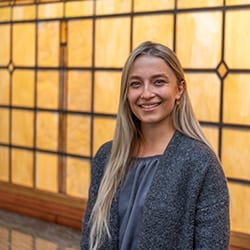
3D printing for everyone.
Renee Dobre
Renee Dobre is a fourth-year undergraduate architecture student at the University of Oregon who will be graduating in the spring. She investigates various styles of media for her research. Renee is awed by emerging technologies and spends time looking for the next ‘new thing’. Her exposure to new technologies transpired through personal and professional research in architectural design. She is inspired by research-based design and hopes to foster solutions for the world’s largest issues. Renee’s talk is intended to bring back hope to a technology lost to controversies and stigmas. Her research will carry over into her career as she investigates ways 3D printers and other technologies can improve daily lives for individuals of all backgrounds.

Teen Behaviors – What’s the gut got to do with it?
Jessica Flannery
Jessica Flannery will receive her doctorate this Spring, in Clinical Psychology from the University of Oregon. She studies how the brain’s development is affected by social stressors during childhood and adolescence. She is specifically interested in how the brain and the gut microbiome communicate during the formative of years of adolescence to impact mental health behaviors. During her tenure in Eugene, she has been the recipient of several prestigious fellowships, including a National Science Foundation Graduate Research Fellowship and a university-level College of Arts and Science Dissertation Fellowship.
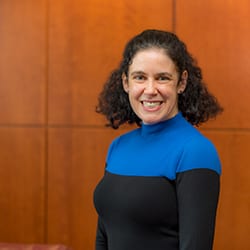
The culture of emoji. 😀📖🌎
Alisa Freedman
Alisa Freedman is a Professor of Japanese Literature, Cultural Studies, and Gender at the University of Oregon and Editor-in-Chief of the U.S.–Japan Women’s Journal. Her books include Tokyo in Transit: Japanese Culture on the Rails and Road (Stanford University Press), an annotated translation of Kawabata Yasunari’s The Scarlet Gang of Asakusa (University of California Press), co-edited volumes on Modern Girls on the Go: Gender, Mobility, and Labor in Japan (Stanford University Press), and Introducing Japanese Popular Culture (Routledge, 40-chapter textbook). She is writing a book about Japanese women who studied at American graduate schools between 1949 and 1966 and became the forgotten mothers of academic fields. She has published articles and book chapters on such diverse topics as Japanese modernism, Tokyo studies, youth culture, gender, television, humor as social critique, teaching pedagogies, and intersections of print and digital media, along with publishing translations of Japanese literature. In addition, Alisa has been nationally recognized for excellence in student mentoring. Her hobbies include any kind of dance and yoga.
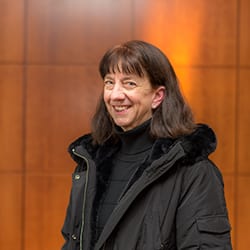
Introducing the Micro-Narrative: 6 tricks from the linguists.
Renée Irvin
Renée A. Irvin (PhD, economics) serves as associate professor and director of the Master of Nonprofit Management program at the University of Oregon. Her current research focuses on family foundations, policies affecting asset-building and wealth, think tanks, and the narrative selling of tax reform. Recent publications include an article in Public Integrity introducing micro-narrative techniques in curating public opinion. Irvin is a University of Oregon Faculty Excellence Award winner, a Public Administration Review 75th Anniversary Most Influential Article award winner, and was a Fulbright Scholar in Guangzhou China in 2009-10. She currently serves as president-elect of the Nonprofit Academic Centers Council.
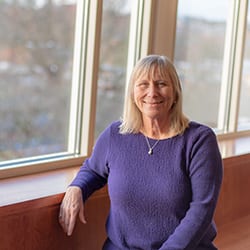
What I can tell you about Guantanamo.
Rita Radostitz
Rita Radostitz is the mother of twin daughters, a voracious reader, and a lover of adventure who has traveled to more than fifty countries, most on her bicycle. She is a double Duck (BA, Political Science; MA Journalism and Nonprofit Management) who has fond childhood memories of playing hide and seek with her siblings in the labyrinth of campus science buildings while her father worked in the Physics Department labs. She led the committee that organized TEDxUOregon in 2013 and 2014. Ms. Radostitz has a JD from Villanova Law School. She’s served as a public defender in Washington and Oregon, and as a capital defense attorney in Texas. She currently lives in Washington DC and works for the Military Commissions Defense Organization.
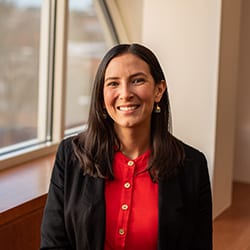
How community gardens preserve culture and grow hope.
Marissa Zarate
Marissa Elena Zarate is the Executive Director of Huerto de la Familia, an organic gardening and small business start-up nonprofit for immigrant families. A graduate of University of Oregon’s School of Law, Marissa also holds a B.A. in Peace Studies from Chapman University. As an attorney, her work focused on immigrant and tenant legal rights. In her current role, she helps create opportunities for families to increase their health, and build community by growing their own organic food. The daughter of a Costa Rican immigrant mother and Mexican-American father, Marissa is now a passionate advocate and leader focused on environmental and human rights issues in the Latinx community. When she isn’t brainstorming innovative programming, Marissa can be found exploring Oregon’s natural wonders with her husband José, stepson Alex, and trusty canine, Gracie.

